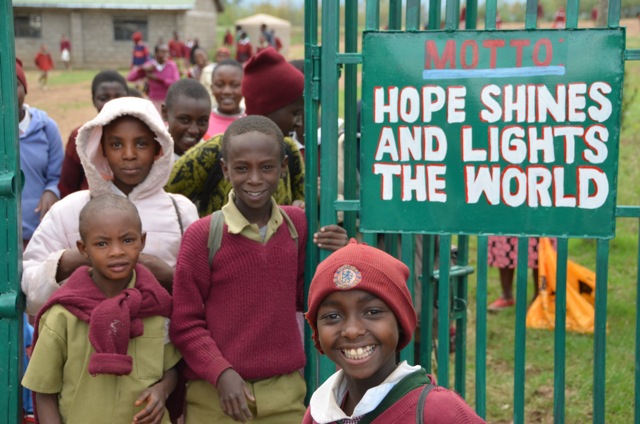
In the opening of the Nobelity Project's award-winning documentary Building Hope, about education in Kenya, filmmaker Turk Pipkin makes an observation while working to provide electricity to a community's primary school: once students completed their primary education, there was nowhere for them to go. Instead of being a celebration of things to come, graduation was often more of a bittersweet ending.

This is how the story of the building of Mahiga Hope High School in Kenya begins and I think this mirrors the situation we are currently in with discussions currently taking place on the "post-2015" development agenda. Everyone in the development world acknowledges the strides that have taken place in the past 13 years but also sees the reality of where we are. Are we on track to meet all of the Millennium Development Goals (MDGs)? No, but the progress made in the past 10 years can not be ignored. Now, how do we build on the successes of our current education MDG (Universal Primary Education), enhance the quality of the education available, and provide meaningful options for continued education beyond primary school to achieve the skills needed in the 21st century globalized workplace?
Building on the in-country experiences and policy work of its coalition members, The Global Campaign for Education-US Chapter has drafted a policy paper, "Total Reach, Total Learning: Education Beyond 2015," laying out a desired framework and evaluation procedure (through indicators) for a future education MDG. In this paper, we recognize that no longer can there just be a focus on access to primary education. Many students are progressing through primary school without gaining basic education skills. In addition, far too many students are making it through primary school with nowhere to go afterwards due to financial, learning and geographical barriers blocking their progress from primary to secondary, very much like those students in "Building Hope." A universal quality education must be inclusive of pre-primary, primary and secondary education to successfully create a skilled workforce ready to take on the jobs available in our current and future economies.
In addition to aspiring elementary students, according to UNESCO, another 71 million students of secondary school age around the world are not in school because of geography, quality of teaching available, required employment to support their families, etc. Many have dropped out, including in the U.S. The U.S. Department of Education has released statistics on graduation rates in 2012 for U.S. high school students. Nationwide, over 26 percent of our students who entered high school in 2008 did not graduate in 2012 -- totaling about 4 million young people who started school in 2008. This is part and parcel to an international pandemic of education failing our secondary school students. The reasons for these students leaving school before completion are complex, but for many it's because the education that is being delivered is not of quality, and/or it's not stimulating or relevant to career opportunities.
As we move forward in our Post-2015 MDG discussions, we must all take responsibility to listen to the youth around the world who will be directly impacted by the real world applications or lack thereof that will come out of a 2030 Education goal. In a report recently released by the My World 2015 Campaign, respondents across the world, across economic strata all answered in mass voice for a quality education as a global priority. A quality education doesn't end with primary school.
I encourage you to be inspired by the voices of youth, their communities and to let these voices in support of universal quality education worldwide drive the actions of today and tomorrow. We're helping to enhance their communications and advocacy skills by bringing young people from around the U.S. to Washington, D.C. for three days in April 2013 for our first Student Advocacy Training. Their voices and community actions will help build a critical mass in support for the right of a quality education for all. This gives me HOPE.